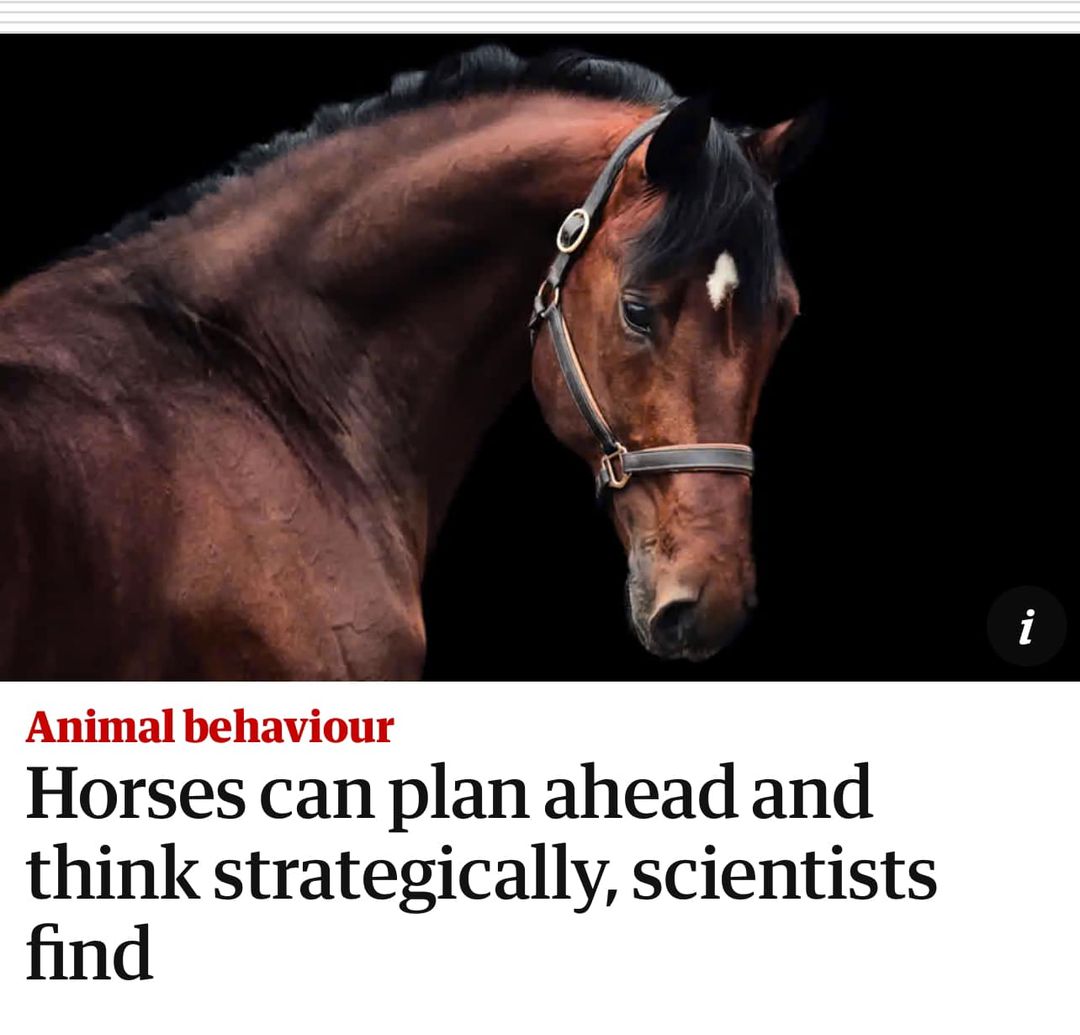Equine scientists believe they have demonstrated a much higher degree of intelligence in horses than previously assumed.
Equine scientists believe they have demonstrated a much higher degree of intelligence in horses than previously assumed.
Mon Nov 25
The old English proverb “you can lead a horse to water, but you can’t make it drink” has been used since the 16th century to describe the difficulty of getting someone to act in their own best interests.
Now, research by equine scientists suggests the use of this phrase has been inadvertently maligning horses for centuries.
Horses have the ability to think and plan ahead and are far more intelligent than scientists previously thought, according to a Nottingham Trent University study that analysed the animal’s responses to a reward-based game.
The horses cannily adapted their approach to the game to get the most treats – while making the least effort.
“Previously, research has suggested that horses simply respond to stimuli in the moment, they don’t proactively look ahead, think ahead and plan their actions – whereas our study shows that they do have an awareness of the consequences and outcomes of their actions,” said the lead researcher, Louise Evans.
The three-stage game involved 20 horses, who were initially rewarded with a treat merely for touching a piece of card with their noses. Then, in the second stage, researchers started switching on a “stop light”. The horses were only given a snack if they touched the card while the stop light was off.
| Category : | Cute Photos |
| Listing ID : | 11596 |








